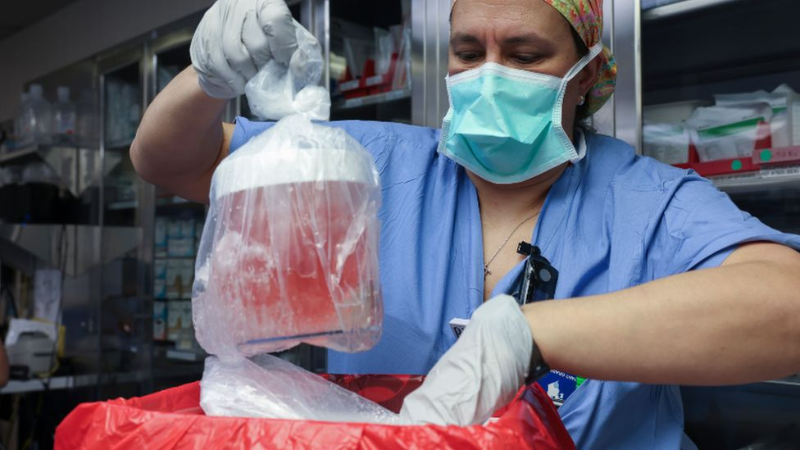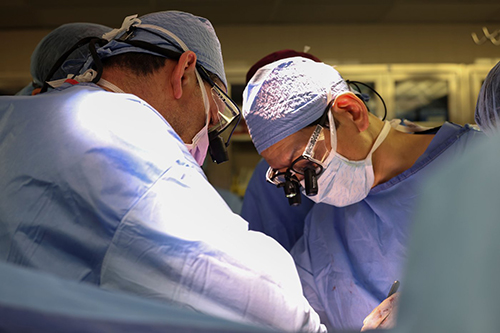
Pioneering Milestone: First Genetically Modified Pig Kidney Transplant Successfully Performed
On March 16, 2024, the US witnessed a historic medical milestone: the successful completion of the first pig-to-human kidney transplant. This groundbreaking procedure, conducted at Massachusetts General Hospital, offers hope to countless individuals battling end-stage kidney disease.
The recipient, 62-year-old Richard Slayman, had previously undergone a kidney transplant from a deceased human donor in December 2018, following seven years on dialysis. Unfortunately, after five years, the transplanted kidney began to fail, and Mr. Slayman resumed dialysis in May 2023, facing recurrent vascular access complications necessitating frequent hospital visits for clotting and surgical revisions.

Transplant surgeons Dr Nahel Elias, left, and Dr Tatsuo Kawai perform the surgery of a transplanted genetically modified pig kidney. Images: Massachusetts General Hospital.
Faced with limited options, Mr Slayman bravely opted for the groundbreaking procedure, recognising its potential not only to aid him but also to inspire hope for others in need of transplants. His decision reflects a profound belief in advancing medical science for the greater good.
The introduction of xenotransplantation, the transplantation of organs from one species to another, opens new doors for patients facing limited organ donation options and lengthy waiting times. Pigs, with their physiological similarities to humans and the availability of genetically engineered pigs to minimise rejection risks, hold promise as organ donors.
The special pig kidney was provided by eGenesis of Cambridge, Massachusetts. The animal had been genetically edited to remove genes that could be harmful to a human recipient and to add certain human genes to improve compatibility.
This 'first' is the result of years of research, development, and collaboration among scientists, surgeons, and ethicists. While it represents a significant breakthrough, challenges persist, including the need for further research to optimise outcomes and address ethical concerns surrounding animal organ donation.
Meanwhile, the pioneering achievement offers renewed hope for patients awaiting life-saving organ transplants, underscoring the transformative potential of xenotransplantation in revolutionising the field of organ transplantation.
We're delighted to report that Mr Slayman was discharged from hospital two weeks after the surgery. His kidney is now functioning well and he is no longer on dialysis.
In a statement, he said being able to leave hospital and go home was "one of the happiest moments" of his life.
"I'm excited to resume spending time with my family, friends, and loved ones free from the burden of dialysis that has affected my quality of life for many years."
We wish him a speedy recovery.
OrganDonation, Transplant, ARPKD, Research, Organ Donation
- Hits: 5228
